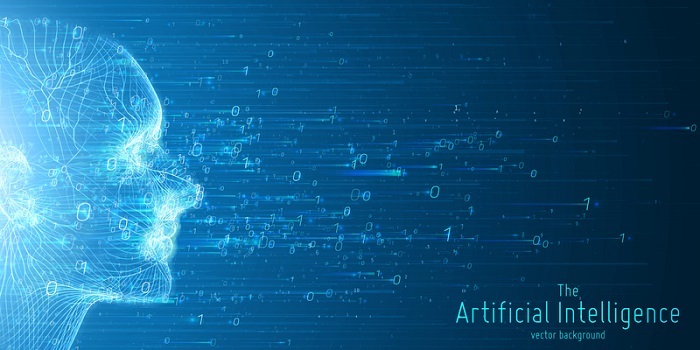
 Data Structure
Data Structure Networking
Networking RDBMS
RDBMS Operating System
Operating System Java
Java MS Excel
MS Excel iOS
iOS HTML
HTML CSS
CSS Android
Android Python
Python C Programming
C Programming C++
C++ C#
C# MongoDB
MongoDB MySQL
MySQL Javascript
Javascript PHP
PHP
- Selected Reading
- UPSC IAS Exams Notes
- Developer's Best Practices
- Questions and Answers
- Effective Resume Writing
- HR Interview Questions
- Computer Glossary
- Who is Who
Facts and Fiction: Artificial Intelligence in Digital Marketing
The application of cutting-edge technology like machine learning algorithms, natural language processing (NLP), and statistical methods in digital advertising is referred to as artificial intelligence (AI).

Businesses may use AI technology to analyse massive volumes of data, spot patterns and patterns of behavior, and produce information that can enhance the tailoring and customization of marketing efforts.
The following are some instances of how AI may be applied to digital marketing ?
Customized consumer experience ? AI may assist companies in personalizing the consumer experience by examining consumer information, choices, and behavior to produce specialized content, suggestions, and offerings.
Virtual assistants and voice robots ? AI-powered avatars and voice commands may aid companies with automating customer care, responding to client inquiries, and offering guidance and assistance.
By examining consumer behavior, geography, and preferences, AI can assist programmatic advertisers to optimize targeted marketing, pricing, and location to produce more pertinent and successful ad campaigns.
Machine translation processing along with machine learning algorithms may be used by AI to assist businesses in creating high content, such as product information, message body lines, and social media postings.
All things considered, AI may provide organizations with additional insight and operational features to enhance the efficacy and productivity of digital marketing initiatives, resulting in better consumer engagement and a greater Increase.
Artificial Intelligence and Machine Learning
The terms artificial intelligence (AI) and machine learning (ML) are closely connected yet distinct from one another.
The term artificial intelligence (AI) describes the imitation of human capacity in computer programs that are designed to carry out operations that generally require cognitive processes, such as perceiving, understanding, understanding, and problem-solving. From actual drones to operating system programs, AI systems may be created to function in a variety of situations.
The mission of machine learning, which is on the other hand, is to create algorithms that let computers learn through inputs without first being supervised by machine learning. It is a component of artificial intelligence. A dataset is used to build algorithms based on machine learning, which may then use this information to forecast the future or make choices.
In essence, AI is the more general discipline that includes robots, the processing of natural languages, object tracking, and machine learning. A technique in AI for creating intelligent systems is machine learning.
In conclusion, machine learning strives to create algorithms capable of gaining knowledge from data to execute particular jobs more effectively, whereas artificial intelligence (AI) is aimed at creating computers that can accomplish tasks that need human understanding.
Facts and Fiction: Artificial Intelligence in Digital Marketing

Artificial intelligence (AI) is becoming a crucial component of digital marketing and is revolutionizing how companies interact and reach out to their audiences. The following list of AI-related myths and truths in digital marketing
Fiction ? AI will take the position of human advertisers.
FACT ? Artificial intelligence (AI) is a tool that can support human advertisers' efforts by assisting with decision-making and automating tedious chores. AI cannot take the place of imagination, sensitivity, and understanding, but it can analyze enormous volumes of data and provide insight that people would overlook.
Fiction ? Only huge firms may benefit from AI
Fact ? The cost and availability of AI technologies are improving for start-ups and small. Companies of all kinds may benefit from AI by streamlining their marketing procedures, personalizing their strategies, and enhancing
Fiction ? AI is a complex, unreliable system.
Fact ? There are initiatives to make AI more understandable and accessible, despite the fact that certain models may very well be transparent and challenging to read.
Businesses can utilize open-source AI models or models that have undergone independent audits to guarantee their accuracy and objectivity.
Fiction ? Simple task automation is the only use of AI
Fact ? AI is capable of handling difficult jobs like predictive modeling, picture classification, and processing of natural languages. Individualized customer care may be delivered via AI-powered robots, and strategists can forecast client behavior and fine-tune their campaigns with the aid of algorithms using machine learning.
Fiction ? AI is a universally applicable technology
Fact ? It's not like all AI tools are appropriate for use in every industry. Various AI models have distinct benefits and drawbacks. Businesses must pick the appropriate AI technologies and tailor them to their own requirements and objectives.
In conclusion, artificial intelligence (AI) is a potent tool that companies can utilize to enhance their digital advertising strategy, however, it ought to be employed carefully and in conjunction with human experience.
Importance of Artificial Intelligence in Digital Marketing
According to its capacity to analyze data, streamline tasks, and make predictions, artificial intelligence (AI) has grown in significance in the field of digital marketing.
The following are a few ways artificial intelligence is changing digital marketing ?
Personalization ? In order to give consumers solutions that are tailored to their needs, AI systems can evaluate large volumes of data about consumer perceptions and preferences. Product suggestions, marketing, and messages may all be customized in this way.
Predictive analytics ? AI systems may examine past data to foresee present patterns and behavior, enabling businesses to make better choices regarding their efforts.
Chatbots ? AI-driven chatbots are able to offer 24/7 immediate services to customers by responding to queries and resolving issues.
Content optimization ? AI algorithms are able to evaluate the effectiveness of content and make modifications to increase engagement as well as conversion rates.
Ad targeting ? AI systems may examine user information and behavior to better target advertising, increasing press and hold rates and return on investment.
Marketing automation ? Automating repetitive operations like customer acquisition and marketing automation is possible with Machine learning marketing industrial automation.
In conclusion, AI is revolutionizing digital marketing by giving businesses strong tools to build more individualized and successful campaigns. Businesses might even save work, work more efficiently, and provide superior outcomes by utilizing AI.
Future of Artificial Intelligence in Digital Marketing
Artificial intelligence (AI) appears to have a bright future in digital marketing. As AI develops quickly, it becomes increasingly complex and effective at completing jobs that need human intellect. There are Several Future potentials of AI technologies in digital marketing are listed below ?
Hyper-personalization ? AI algorithms will indeed be able to tailor marketing communications to a high level of customization, offering a tailored encounter that goes any further than a consumer's fundamental demographic data.
Voice Search Efficiency ? As more users turn to voice search, AI will assist online marketers in making their information more conversation search-friendly.
Augmented Reality ? By combining augmented reality and AI, marketing professionals can provide visitors a more interactive environment, which will increase customer involvement and rate of conversion.
Customer experience ? AI-powered chatbots and robo - advisors will get even smarter, enabling them to address more complicated questions and offer more individualized support for customers.
Video marketing ? AI will still be utilized to enhance video material, for example by producing customized videos that appeal to certain clients.
Overall, AI will continue to play a big role in digital marketing, allowing brands to develop more personalized experiences, improve their content, and make more educated choices through data-driven insights. Firms that use AI will have an edge over their competitors in the digital world, and the prospects for artificial intelligence in digital marketing look intriguing.
Conclusion
In conclusion, it is a reality that AI is used in digital marketing. Digital marketers now have new options to develop more individualized and successful campaigns thanks to AI's transformation of the sector. Understanding the restrictions and promise of AI in digital marketing is crucial in order to distinguish reality from fantasy. Managers are going to have a comparative advantage in the digital environment if they use AI as a platform to supplement their understanding and insights.

